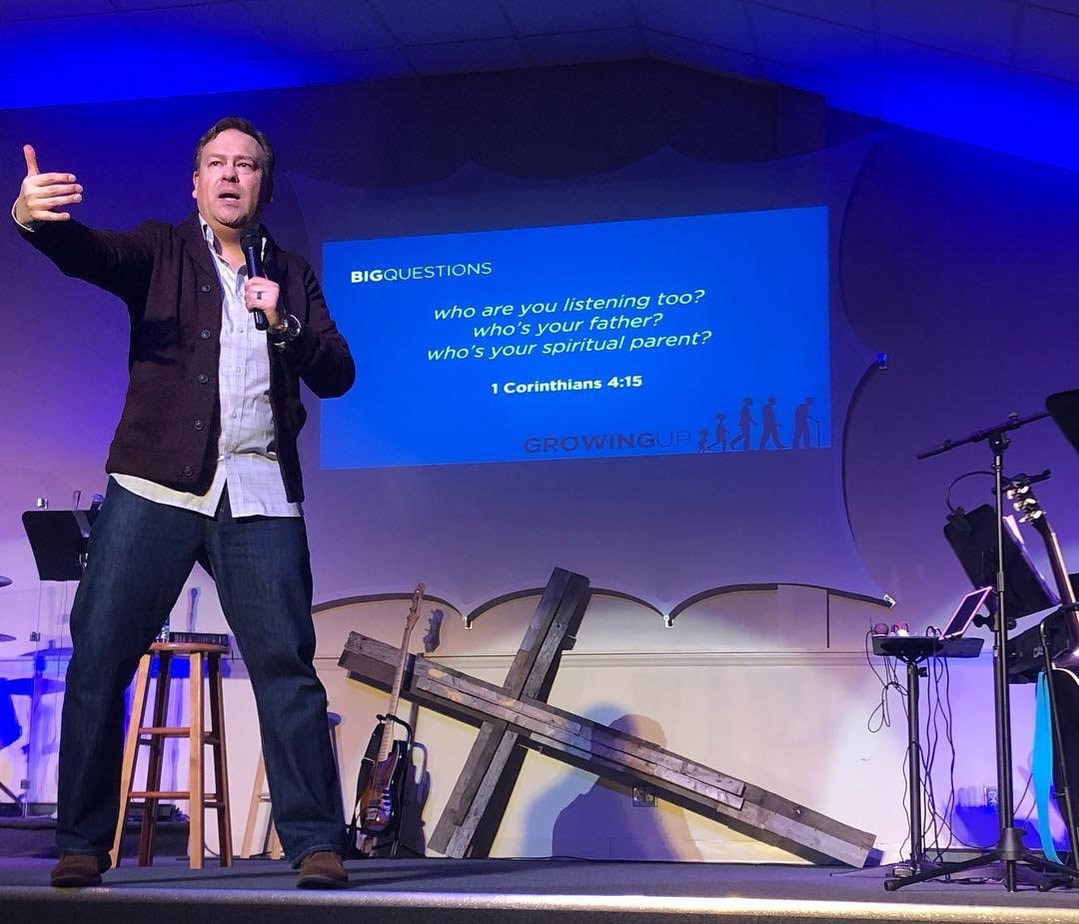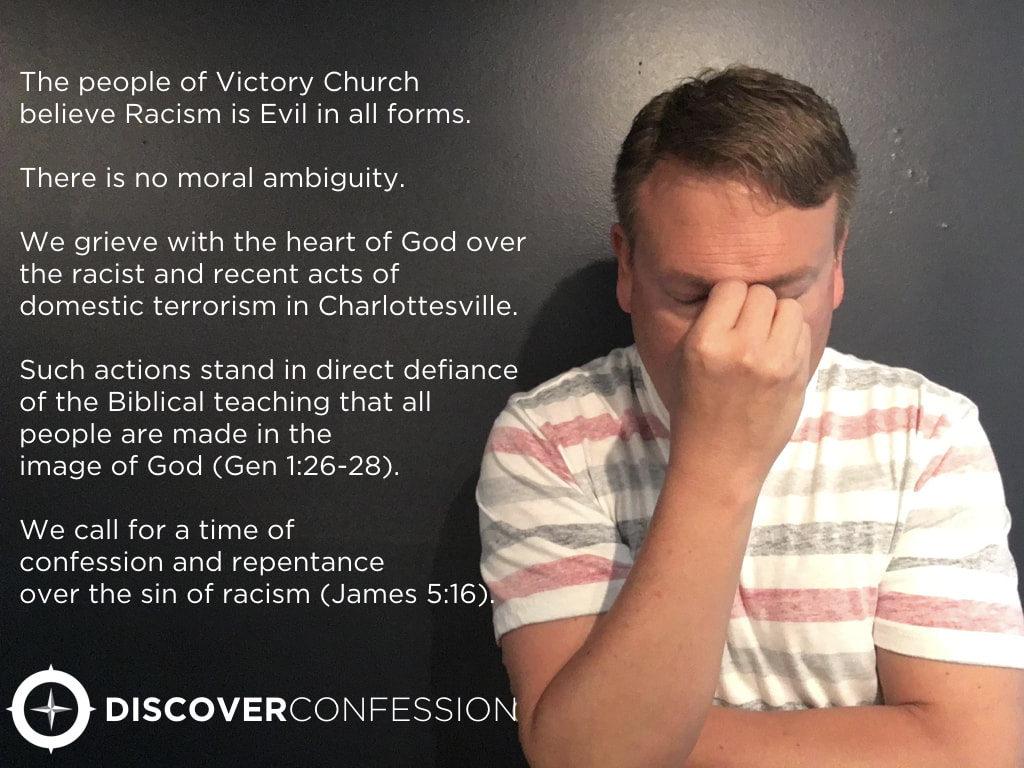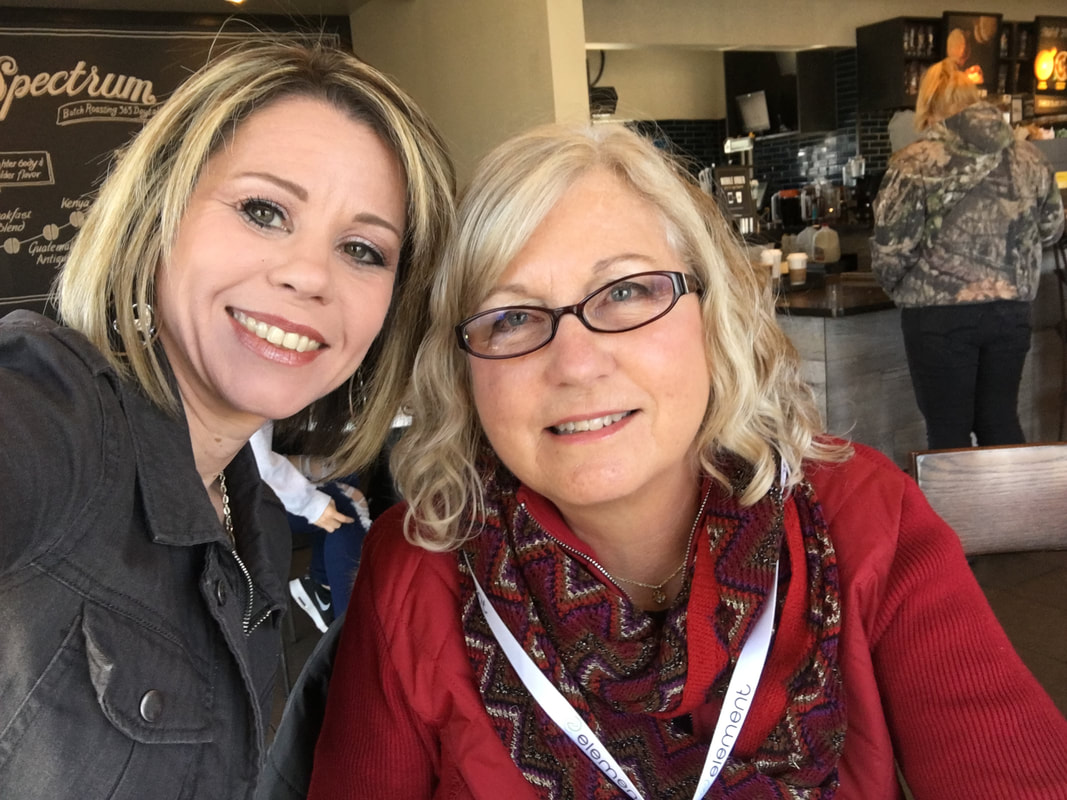|
The Pastoral Task Thus far in 2019, I have considered one major question, "What is the task of pastoral work?" In other words, what should pastors be doing? Pastoral job descriptions are often thought of in three categories: the preacher, the counselor, and the leader. Which is fine but I think there's something more here. Right or Wrong, I have come to the conclusion that the #1 task of a pastor is to love people. It's that simple and yet that powerful. I often think of Paul in 1 Corinthians 3:1,"If I speak in the tongues of men or of angels, but do not have love, I am only a resounding gong or a clanging cymbal." In short if pastors don't love people then they basically have lost their ministry. They can probably preach and lead well, but if they really don't love people, they really aren't leading people. I am struck by the power of love. Love takes on many, many forms and shows itself in unique ways. I love public intellectual Charlie Self's definition of work, "All meaningful and moral activity apart from leisure and rest." When we think of work we often think of it as only narrow economic constraints of time traded for money. Though pastoral work goes beyond a paycheck. It's investing in people's lives. Sometimes love is work and sometimes work is love. Many times in pastoral "work" it's "work" to love people. Once in while you'll land in a great church were people are awesome, like Victory Church, my Victors are beautiful people. They love to be loved. I'm reminded of 1 Peter 3:8 when he states, "Finally, all of you, be like-minded, be sympathetic, love one another, be compassionate and humble." I've learned to give people the benefit of the doubt. You really don't know the kind of pain that people are living in. Believe me it's a lot.  In an age when pastors are bombarded with organizational leadership and business culture, all of which is important, we simply cannot get in the way of real people needing real love. I'm challenged by Luke's words in Acts 20:28, "Pay careful attention to yourselves and to all the flock, in which the Holy Spirit has made you overseers, to care for the church of God, which he obtained with his own blood." This scripture sits deep in me for a number of reasons here's three reasons why sometimes love is work and work is love:
Three Reasons Work is Love 1.) People Don't Know How to Love. I have come the conclusion that most people don't know how to receive love because they have never really been loved. It's really hard for people to trust others who are motivated by Jesus commandment to love one another (John 13:34-35). When people open their heart it's a sacred act and a real privilege for pastors. 2.) People are Broken. I continue to be amazed at the level of emotional heaviness that people have absorbed. I'm even more amazed how sensitive and how many trigger points people have due to unresolved unforgiveness and pain. I break when people have little to no tools to be able to address brokenness and loss. It's painful to watch. Scott Hagan of Northcentral University says it best, "The love pressing in must be stronger than the pain pushing out." 3.) People Need Attention. In our digital age of hyper-connectivity of social media its ironic that people have more "friends" yet more and more people are experiencing increased loneliness. People aren't craving click friends; people are craving attention from real people. Real relationships. Real friends. Real love. I'm growing. I'm learning. I'm growing and learning that real work is real love. Sometimes love is work and I'm ready to work. A former professor of mine said it the best, "You can't lead the people if you don't love the people" (Cornell West). Pastors let's get loving. I mean get to work. PJB "May the favor of the Lord our God rest on us; establish the work of our hands for us— yes, establish the work of our hands." ~ Proverbs 90:17 The more I pastor, the more and more it is becoming real to me that real life discipleship does not happen in our church building. Real life discipleship happens at work. (Sometimes it bothers me, because our church building is modern and gorgeous. Though we leverage it well as it is home to the Victory School, a selective preschool, that's all techie, fun and full of love.) Here's some social media posts on a few of my Victors (what we call people who attend Victory Church) at work. As a pastor, it is vital to understand the context of how their faith is worked out in the day to day reality of where they spend their time. Where's that? At work. So what do I actually do when I am at work with them. If I can I actually work. I move stuff, grab paperwork, visit customers but mostly it's understanding the daily life of our Victors. At bottom, I'm watching God at work. Amen.
Pentecostals believe that God poured out his spirit on both men and women at Pentecost, inspiring both sons and daughters to prophesy (cf. Acts 2:16-8; Joel 2:28-29). We believe Scripture indicates women’s inclusion in the ministries of the new covenant age. Not only do we not have a theological problem with women in ministry in my denomination, but we fully embrace them. But do we really embrace women in ministry? Do we hire them for teaching and executive leadership positions or do we throw up roadblocks and excuses for not passing the pastoral mantle to women? I’ve observed that some of our best and brightest women have few options for upward movement from children and youth ministry, or after they return from the mission field—even in denominations that ordain women. Many women go into children’s ministry simply because they don’t have other options. But if we really believe that women should be in ministry, then the question becomes: why don't we see more women in executive and teaching ministry roles? The philosophical usually plays out in the practical. And nothing is more practical than money. Labor Economics for Women in Ministry Here are two economic principles that help explain the absence of women in leadership positions in the church, and even in churches that ordain women: Taste-Based Discrimination and Time Value of Money (TVM). Taste-Based Discrimination is discrimination against a group of people that leads to inefficient allocation of economic resources to that group. Time Value of Money (TVM) is the idea that money available at a present time is worth more than the same amount in the future due to its potential earning capacity. I realize economic language can seem a little complex, but I’ll break it down. Let’s take a look at the brutal economic reality and gender discrimination experienced by a hypothetical woman in ministry over a ten year period. We’ll apply these two economic principles over a decade of projected work life/income. This is a potential Time Value of Money (TVM) trajectory for a female pastor, based on what I hear from other lead pastors. This is also where we see the insidious narrative of structural sin. "Well, I'd hire a woman but I can't find a woman that is qualified." Age 22—Called and Educated A single (unmarried), female pastor is called to ministry. She earns a BA in ministry, but then can't find a job. Why? It's not that she's unqualified. She is just as qualified for an entry level ministry position as her male counterparts with BAs. It's because a forty-something, male lead pastor believes it's not "appropriate" to mentor a twenty-something, female pastor. Age 28—Called, Educated, and Not Mentored Fast forward a few years. Because our called female pastor can't find a paid position with a BA, she goes to seminary and earns an advanced degree. Yet, she still can't find a job because she is educated but has very little real and/or paid ministry experience. A male, forty-five or fifty-something lead pastor says, "She’s educated, but she doesn't have the professional experience we need." She's passed over for an associate role. What's really going on here? Many male lead pastors will say they don't feel "comfortable" hiring a twenty-eight year-old female with an MDiv. But when a male pastor cites “uncomfortableness” as the reason he won’t hire a female candidate, what’s often really at play is his own insecurity at the idea of mentoring a woman that is younger and more educated than him. This is where we see Taste-Based Discrimination in labor economics. Our fifty year-old lead pastor believes he would not be the "right person" to mentor an under-thirty, female pastor. He uses words like "uncomfortable," "inappropriate," "not the right fit," and other soft and polite language. He practically justifies the non-hire because the female pastor doesn't have the experience to win the post. He doesn’t recognize his own bias or consider the reason the female candidate might not have as much “experience” as a male candidate. Age 33—Called, Educated, Not Mentored, and Unemployed A decade has passed, and now the real TVM labor economic issue comes to bear. She can't find a job in ministry, so she goes to earn a DMin, thinking: Who wouldn't hire Dr. Me? Now she's a thirty-three year-old, possibly married with preschoolers. She holds an MDiv/DMin and has volunteer but no paid ministry experience. So then a sixty-something lead pastor says, "Well, she's educated but 'young in ministry' with no paid experience.” She’s also now over-qualified and “too old” for an associate pastor role. Now she’s ten years (TVM) down the ministry road and, since she never obtained paid ministry experience, she can't compete for a post that pays $50,000-60,000. If she could win a post, she can't afford to take that $28,000 entry level salary because she has student loans and perhaps also a family. Reality sets in. She lacks ministry experience, especially paid ministry experience. She’s loaded with educational debt. More importantly, she doesn’t have mentors and therefore, networking ability. What happens now? She becomes a "consultant" and "speaker." She never really fulfils the pastoral calling God has put in her heart. But she has a great blog. Female Pastoral Career Reality Check Now, let's ask the obvious: why didn’t our hypothetical female pastor’s career ever take off? Well frankly, it's because our hypothetical male lead pastor engaged in a Taste-Based Discrimination practice known as the "Billy Graham" rule. Our male pastor hid behind the "Billy Graham Rule" for a lifetime, all in the name of holiness. Justified or unjustified, he’s allowed his own bias to obstruct the careers of female pastors. He will never hire a younger woman, nor a woman who is more educated than him. And he’ll justify it because those women don’t have professional paid ministry experience. Moreover, he’ll defend his action, citing a desire to "avoid the appearance of evil" (I Thess. 5:22). Our talented female pastor is now pushing forty. She’s never had space and freedom to discover "God's will for her life." She’s never been mentored. She’s never been hired. She’s over-educated, in debt, and working as a "consultant and speaker." Sad. A result of systemic sin. And yet, this happens to women in ministry all the time. Final Thoughts What can we do about this? Here's a few thoughts, mainly for male church leaders and pastors who theoretically support women in ministry:
According to the New York Times, the rally on Saturday, August 12th was organized in opposition to a plan by local officials to remove a statue of Robert E. Lee, the Confederacy’s top general, from Emancipation Park in Charlottesville. On Sunday the 13th at Victory Church we spoke about these Neo Nazi actions as demonic and anti-gospel. We spoke about Charlottesville out of the context of oppression in Micah 2:1-2: "Woe to those who scheme iniquity, Who work out evil on their beds! When morning comes, they do it, For it is in the power of their hands. They covet fields and then seize them, And houses, and take them away. They rob a man and his house, A man and his inheritance." Micah warns about those who plan and execute evil. The natural contextualization of scripture to culture is obvious -- this kind of blatant Neo Nazi racism is demonic.  Victory Church's response to racism. Victory Church's response to racism. Though, I find myself being a bit leery when I see many churches, frankly pastored by "elite white men", releasing "official" statements condemning these actions. At some level, it's an indictment. It makes me ask questions like why do we have to release a statement? Doesn't the culture know where the church stands on race? Shouldn't we be preaching on the sin of racism regularly? One could see such public statements as a token nod to our African-American citizens or worse simply disingenuous -- "I have a black friend therefore I condemn this action". (Side note: As a Tex-Mex, my latin heritage comes from the Spanish colonization of Mexico so I have some sense of what racism looks like. I too have stories.) It causes me to ask self penetrating questions like:
"Do I read, listen and teach about what the 'new' Jim Crow looks like in American life"? The answer to these questions is "Yes" but not nearly enough. It just seems too convenient to jump on the social justice train and a little opportunistic. Though if "white elite pastor's" don't say something then do they / we / I are accused of "the silence is defeating" motif. What to do? It seems one answer is message consistency -- being consistent on the sin of racism brings a level of credibility. Here at Victory Church, we released an official statement calling for a time of confession and repentance (James 5:16) over the sin of racism. Why? Because we understand the sins of our fathers. We regularly address and live with the historical issue of racism. We live in York-Poquoson in the Chesapeake Bay area of Virginia. We fully understand the diabolical history and live with the residual effects of the structural sin of racism. It is estimated that 127,200 slaves were brought through the Chesapeake Bay. Every time I go to the store, the golf course, a restaurant or coach one of my 7th grade soccer players. I'm keenly aware of our collective heritage. Our heritage is slavery. The answer is not to take down statues and flags one answer is to humble ourselves, pray and confess and repent from our wicked ways so God will indeed heal our land (2 Chron 7:14). We cannot rewrite of history but we can call for a reassessment of history. Instead of looking at these monuments of pride we should view these monuments as a reminder of our misguided past. We have to tell the truth. It's not pretty. It's not easy. We must confess & repent of racism then go and sin no more. As a pastor who leads a faith community who's mission is to "Invite people to discover Jesus in everyday life" it is obvious to me that we simply are not praying, teaching and repenting enough. The "white church" allowed this worldview to continue not only a few hours away but these kinds of attitudes exist in our own communities.
I love Virginia, and I want it to be "for lovers" though we as a faith community have a long away to go towards repentance and loving those whom we have robbed a man, his house, and his inheritance." Micah 2:2  Here's the finance equations we ran determining the cost of ministry. Here's the finance equations we ran determining the cost of ministry. Numbers are People, Too I'm sitting in a boardroom a few days ago thinking with my team on how to financially reengineer a large and expensive ministry that we lead. An associate of mine and I determined a course of action that creates a revenue source and serves double the amount of people. In my neoliberal economic way of thinking it was a no brainer. Double the money and double the impact in peoples lives -- duh -- let's go! Then one of our directors said in her stern and soft feminine way, "I'm unsettled, numbers are people too". That simple comment put me in conflict with myself. The internal economist & ethicist had a quarrel in my heart. Such a simple comment had me thinking that to simply trade services from one population to another other population is flawed ministry thinking. The people we serve now, matter just as much and need us to sustain their livelihood. Plus we have our employees that matter just as much to us and rely on us for their livelihood. Cost of Ministry I have learned in ministry there are two major (there's many more) equation costs: money and relationships. A typical MBA (I'm an MPA, so I hope I have some social conscience) would look at the cost of labor and their ability to create revenue. Textbooks say you take the total labor hours (sometimes called direct labor) in a pay period (that's your time). You add up those hours, times their pay (labor rate) that will give you the cost of your good or service some call it a manufacturing cost (you can play around with the index and adjust it for your ministry https://www.bls.gov/ect). Once the labor costs are discovered then a decision making process starts to ask, "What's the real cost of doing ministry?" Though the money may fund the ministry what's the cost of those relationships? The undeniable reality in economics is that when a decision "A" is made it triggers a decision "B". When you push a button you simultaneously pull a lever -- it's called trade offs and oppournity costs. Essentially, what's a cost of making decision A or decision B? These decisions are tough because this is real life with real people. This learning process has caused us as a team to work hard to do the best for everyone and all parties even though there may a financial cost to our ministry. Why? Because, "Numbers are people, too". |
bio:+ Economic Theologian |



 RSS Feed
RSS Feed